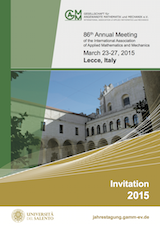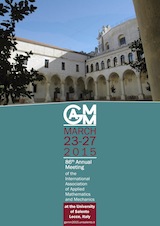S01 - Multi-body dynamics
Multibody dynamics enables the simulation of a wide variety of systems, all characterized by having multiple parts in relative motion with one another. Applications span from biological to engineering systems, requiring diverse capabilities which range from real-time simulation to high fidelity modeling of complex multidisciplinary systems. Goal of this mini-symposium is to present a view on the latest developments in models and advanced numerical methods in multibody dynamics. Focus is on techniques that enable applications to complex real-life problems.
organizers:
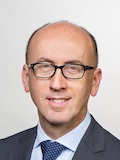 |
Carlo Bottasso TU München mail, home page |
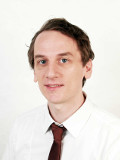 |
Thomas Buschmann München mail, home page |
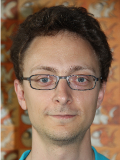 |
Pascal Ziegler Stuttgart mail, home page |
S02 - Biomechanics
The section will be focused on numerical and experimental models for the study of structure, function and evolution of biological systems at a broad spectrum of scales: from cells to tissues and from organs to the entire body and its interaction with the environment. The discussed topics will be: gait analysis and foot biomechanics, musculoskeletal and orthopedic biomechanics, remodeling, cardiovascular biomechanics, multiphase modeling of biological tissues, tumor growth modeling, transport oncophysics, nanomechanics of biological materials, nanomedicine, modeling of drugs delivery.
organizers:
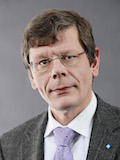 |
Udo Nackenhorst Hannover mail, home page |
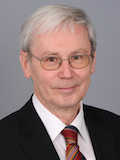 |
Franz G. Rammerstorfer Wien mail, home page |
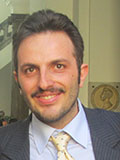 |
Giuseppe Sciumè Lecce mail, home page |
S03 - Damage and fracture mechanics
The section focuses on damage mechanisms and fracture mechanics for all kinds of solid materials and structures. It aims at bringing together related research including experimental observations, modeling approaches and numerical techniques. In general, material failure is a complex process which may be considered on different length scales ranging from the atomistic up to the component, or even to the structural, level. Besides the material behavior of course also aspects of loading situations are crucial to describe failure. Thus, contributions focusing on static failure, dynamic failure or cyclic fatigue are equally welcome.
organizers:
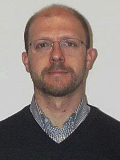 |
Stefano Invernizzi Torino mail, home page |
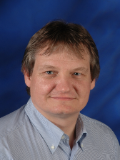 |
Ralf Müller Kasierslautern mail, home page |
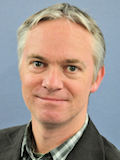 |
Thomas Seelig Karlsruhe mail, home page |
S04 - Structural mechanics
The section will focus on advanced theoretical, numerical and experimental models for the evaluation of the behavior of structures. The diffusion of innovative materials characterized by high strength, anisotropy and unconventional mechanical responses (metamaterials) pose new challenges to the design and the performance of various structural elements like beams, plates and shells. In particular, structural issues may appear at different scales when materials with an internal architecture are employed. Particularly welcome are models and algorithms for structures that address nonlinear material behaviors and investigate structural stability at different scales.
organizers:
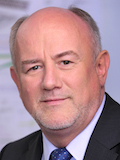 |
Josef Eberhardsteiner Wien mail, home page |
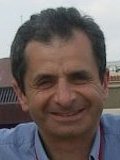 |
Mikhail Itskov Aachen mail, home page |
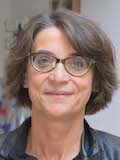 |
Anna Pandolfi Milano mail, home page |
S05 - Nonlinear oscillations
The section covers all fields of vibrational problems in solid mechanics or mechatronics including nonlinear effects. Submissions may address, for example, systems with nonlinear material behavior, nonlinearities in joints, mathematical solution methods (analytical or numerical), control or description of nonlinear behavior like bifurcations or chaos, or experimental idendification of nonlinearities.
organizers:
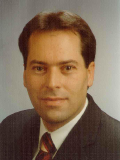 |
Michael Hanss Stuttgart mail, home page |
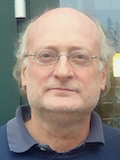 |
Paolo Maremonti Napoli mail, home page |
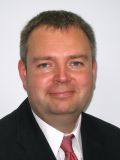 |
Utz von Wagner Berlin mail, home page |
S06 - Material modelling in solid mechanics
The section focuses on constitutive modeling of natural and artificial materials subjected to elastic and inelastic deformation processes. The aim is to compare new constitutive models formulated on phenomenological and micromechanics basis to determine their validity limits also by means of the simulation of the experimental data. A wide range of open problems will be considered in the Section, from multi-scale modeling of heterogeneous materials, to the implementation of constitutive models in numerical applications until to the virtual testing of structural systems.
organizers:
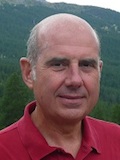 |
Luigi Gambarotta Genova mail, home page |
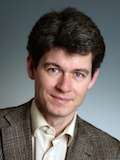 |
Andreas Menzel Dortmund mail, home page |
 |
Valentina Salomoni Padova mail, home page |
S07 - Coupled problems
Coupled problems arise in several applications. From a general point of view each problem containing more than one primary field is called a coupled one. Usually the class of coupled problems is subdivided into volumetrically coupled problems and problems with surface coupling. The class of volumetrically coupled problems contains e.g. the fluid flow in porous solids described by mixture theory, thermo-mechanically coupled problems, chemo-mechanically coupled problems and electro- or magneto-mechanically coupled problems while in the second class problems like the fluid-solid interaction via an interface are included.
All problems is in common that the presence of different fields in the numerical treatment requires special attention with respect to the multi-field formulation and the solution strategy. The session on coupled problems deals with all aspects mentioned above, i.e. ranging from modelling aspects to numerical solution strategies.
organizers:
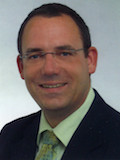 |
Stefan Diebels Saarbrücken mail, home page |
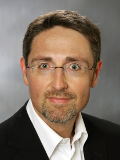 |
Bernd Markert Aachen mail, home page |
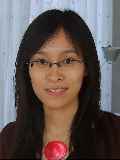 |
Bai-Xiang Xu Darmstadt mail, home page |
S08 - Multiscales and homogenization
This section is dedicated to discuss recent advances in multiscale and homogenization techniques. Topics of particular interest are nonlinear homogenization techniques, multiscale modelling of failure processes and localization phenomena, FE2 methods, multiphysics phenomena, atomistic to continuum coupling, contact homogenization, numerical techniques for bridging the gap between scales, coarse graining methods, model reduction techniques and multiscale techniques for dynamic problems.
organizers:
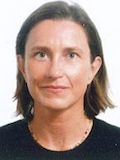 |
Daniela Boso Padova mail, home page |
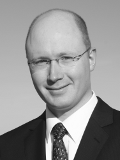 |
Stefan Löhnert Hannover mail, home page |
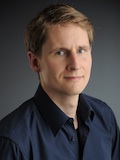 |
Roger A. Sauer Aachen mail, home page |
S09 - Flows and transition
This section will focus on the analysis and modeling of transition from laminar to turbulent flow using DNS, LES, RANS equations, and experiments.
Contributions are expected in, but not limited to, the following topics: stability of incompressible and compressible flows, fundamental study of the dynamics of transition, influence of the wall roughness on transition, transition modelling for LES and RANS equations, transition in flows with complex geometries, subcritical transition.
organizers:
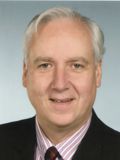 |
Christoph Brücker Freiberg mail, home page |
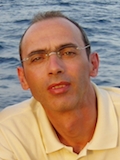 |
Pietro De Palma Politecnico di Bari mail, home page |
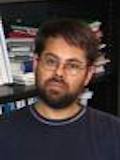 |
Jean-Christophe Robinet Arts et Métiers ParisTech mail, home page |
S10 - Turbulence and reactive flows
The topic of this session is the analysis and modeling of turbulent non-reactive and reactive flows based on DNS, LES, RANS, and experiments.
A special focus is on fundamentals in turbulence, turbulent reactive flows, turbulent multi-phase flows, modeling and simulation of complex turbulent flows, the interface of numerical algorithms, chemical and physical modeling, as well as high-performance computing with its application to turbulence.
organizers:
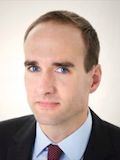 |
Andreas Kempf Duisburg-Essen mail, home page |
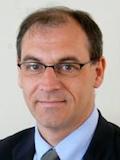 |
Heinz Pitsch Aachen mail, home page |
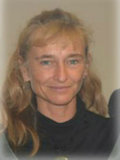 |
Maria Vittoria Salvetti Pisa mail, home page |
S11 - Interfacial flows
Understanding and controlling of interfacial phenomena in multiphase flows is one of the main challenges in fluid mechanics, at the crossroads of scientific disciplines like Mathematics, Physics, Chemistry and Engineering.
Examples are particle-laden flows, bubble columns, fuel atomization, casting, oil recovery, film flows, spreading and dewetting of (complex) liquids including suspensions, polymer solutions, liquid crystals, colloids and biofluids. All these systems are central for technological advances in the chemical, pharmaceutical, environmental and food industries and crucial for the development of Microfluidics and Nanostructuring. Goal of this Section is to provide a representative overview of the latest developments in this area, covering models, numerical methods and experimental techniques but also surveying new physical insights and recent technical advancements.
organizers:
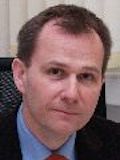 |
Gunther Brenner Clausthal mail, home page |
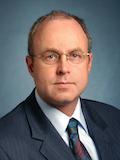 |
Jochen Fröhlich Dresden mail, home page |
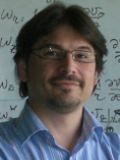 |
Christian Marchioli Udine mail, home page |
S12 - Waves and acoustics
Waves are a ubiquitous natural phenomenon and acoustics are, besides surface water waves, the most obvious representatives, familiar to anybody and quantitatively known to any student of mathematics, physics or a technical subject. To this corresponds a long mathematical tradition, continuing today in the accurate numerical computation of linear and nonlinear wave phenomena.
Our session is devoted to the simulation and understanding of waves and wave interactions. The range of applications is thus very broad, while the focus is meant to be on the unifying physical phenomenon. In the past years we had numerous contributions from solid mechanics, porous media flow, turbulence and aeroacoustics, from crack detection to explosions.
organizers:
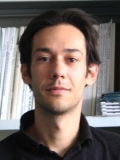 |
Xavier Gloerfelt Arts et Metiers ParisTech mail, home page |
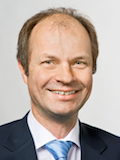 |
Michael Manhart München mail, home page |
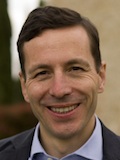 |
Jörn Sesterhenn Berlin mail, home page |
S13 - Flow control
Many technical applications involving flows profit from trying to manipulate the boundary conditions or flow parameters in such a way as to generate a desired effect, like reduced drag, increased mixing, attenuated or increased turbulence or reduced sound emission, for example. The sophistication of the governing equations requires a broad range of research topics and methods to be covered, including analytical treatments, reduced-order modelling, passive manipulation of boundaries in experiments involving riblets, active manipulations using actuators, for example, or numerical approaches involving the adjoint equations, amongst others.
The speakers of our session reflect the broad application area of flow control and discuss difficulties in the application side and recent advances in the analysis, as well as experimental and numerical approaches.
organizers:
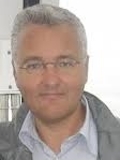 |
Alessandro Bottaro Genova mail, home page |
 |
Holger Foysi Siegen mail, home page |
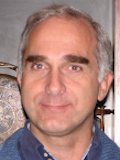 |
Paolo Luchini Salerno mail, home page |
S14 - Applied analysis
This Session is devoted to the mathematical analysis of natural phenomena and engineering problems. In this area PDEs play a basic role. Therefore lectures discussing analytical aspects of PDE problems as well as problems in the Calculus of Variations are welcome. On account of the importance of applications in Materials Science, the Session will have a special focus on the following topics:
- Shape memory polymers
- Liquid crystals
- Bio-materials
- Ferromagnetic materials
- Two-phase fluids
- Gas storage in alloys and polymers
- Phase transitions in smart materials
- Damage and other dissipative processes in solids
The interest in such issues is witnessed by an intense research which requires a delicate interplay between experiments, modeling, theoretical analysis of PDEs and their numerical approximation. This Session is intended to be an occasion to discuss the various aspects of this interdisciplinary subject, taking advantage of the contributions of young researchers in the field.
organizers:
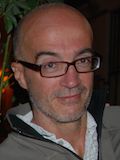 |
Maurizio Grasselli Milano mail, home page |
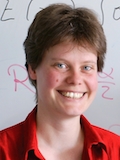 |
Dorothee Knees Kassel mail, home page |
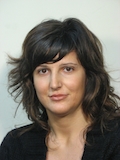 |
Elisabetta Rocca Berlin mail, home page |
S15 - Applied stochastics
The session welcomes contributions on the following topics: uncertainty quantification; risk analysis and assessment; Bayesian methods in engineering; decision analysis; probabilistic modelling; stochastic mechanics. Applications to large scale engineering problems involving the use of computer models, like fluid mechanics and structural mechanics, are encouraged.
organizers:
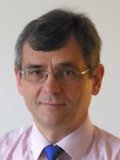 |
Christian Bucher Wien mail, home page |
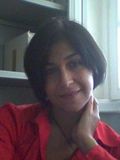 |
Paola Cinnella Lecce mail, home page |
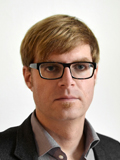 |
Daniel Straub München mail, home page |
S16 - Optimization
Optimization is the next natural step after simulation with increasing importance in the future. The aim of this session is to provide the basis of a holistic overview of all areas of optimization. Thus abstracts from both a theoretical as well as an applied perspective are welcome.
organizers:
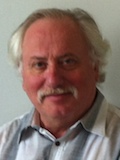 |
Jean-Antoine Désidéri Inria Sophia Antipolis mail, home page |
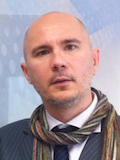 |
Valentino Pediroda Trieste mail, home page |
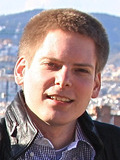 |
Stephan Schmidt Würzburg mail, home page |
S17 - Applied and numerical linear algebra
The aim of this section is to bring together experts in the field of applied and numerical linear algebra, discussing recent theoretical and algorithmic developments.
organizers:
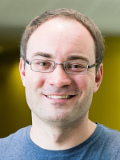 |
Stefan Güttel Manchester mail, home page |
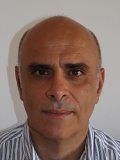 |
Nicola Mastronardi Bari mail, home page |
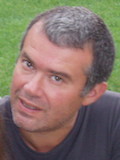 |
Stefano Serra Capizzano Como mail, home page |
S18 - Numerical methods for differential equations
For all fields of applications the mathematical models are primarily based on differential equations. Hence, their numerical solution plays a fundamental role in numerical mathematics. This section covers mainly the construction and the behavior of numerical methods for differential equations including those of ordinary as well as of partial differential type.
organizers:
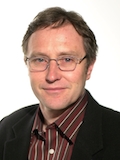 |
Claus-Dieter Munz Stuttgart mail, home page |
 |
Tiziano Politi Bari mail, home page |
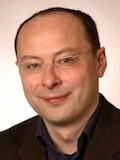 |
Christian Rohde Stuttgart mail, home page |
S19 - Optimization of differential equations
In this session novel developments devoted to optimization and optimal control problems governed by ordinary or partial differential equations will be discussed. The focus is on theoretical investigations, numerical analysis, algorithnmic issues as well as on application.
organizers:
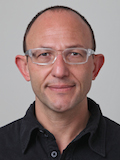 |
Alfio Borzi Würzburg mail, home page |
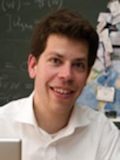 |
Michael Herty RWTH Aachen mail, home page |
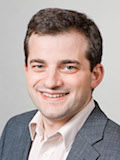 |
Boris Vexler München mail, home page |
S20 - Dynamics and control
Dynamics and control is an interdisciplinary section which in particular adresses mathematical systems theory and control engineering. The contributions to this section are also concerned with the mathematical understanding of the dynamics of controllers which appear in actual applications.
organizers:
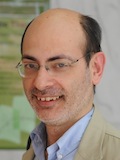 |
Fabio Ancona Padova mail, home page |
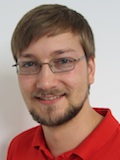 |
Thomas Berger Hamburg mail, home page |
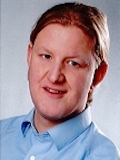 |
Matthias Voigt Berlin mail, home page |
S21 - Mathematical image processing
Over the last decade mathematics has become the cornerstone in Signal and Image processing ranging from various methods for signal reconstruction to modelling of imaging modalities over its classical disciplines compression, denoising, segmentation, and registration to feature extraction. The used methodologies include such diverse fields as harmonic analysis, inverse problems, variational analysis, mathematical statistics, partial differential equations, optimization, approximation theory and sampling theory. The aim of this section is to foster interdisciplinary collaboration and the development of new directions in mathematical signal and image processing spawned from the interaction of various mathematical communities.
organizers:
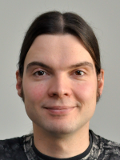 |
Benjamin Berkels RWTH Aachen mail, home page |
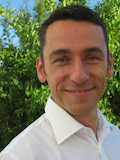 |
Stefan Kunis Osnabrück mail, home page |
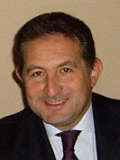 |
Gianluca Vinti Perugia mail, home page |
S22 - Scientific computing
Scientific Computing is concerned with the efficient numerical solution of mathematical models from both science and engineering. The field covers a wide range of topics: from mathematical modeling over the development, analysis and efficient implementation of numerical methods and algorithms to software and finally application for the solution of complex real-world problems on modern computing systems. This interdisciplinary field combines approaches from applied mathematics, computer science and a wide range of applications in which in-silico experiments play an increasingly important role.
organizers:
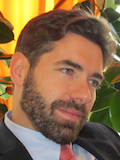 |
Carlo Janna Padova mail, home page |
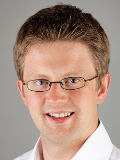 |
Daniel Ruprecht Lugano mail, home page |
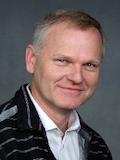 |
Kees Vuik Netherlands mail, home page |
S23 - Applied operator theory
The session welcomes talks in operator theory, including: differential operators, operator semigroups, spectral theory, operators in indefinite inner product spaces, function spaces and mathematical physics.
organizers:
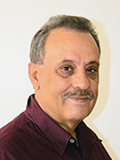 |
Pietro Aiena Palermo mail, home page |
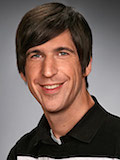 |
Friedrich Philipp Berlin mail, home page |
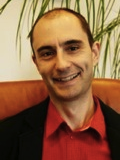 |
Michal Wojtylak Cracow mail, home page |
S24 - History of mechanics
This section will provide a forum for the presentation of historical and/or speculative studies on mechanics focusing on the relations between concepts from antiquity up to now, which could be of interest to historians of mechanics and physics as well as researchers in mechanics.
The contributions of those authors who have benefited from the study of old theories for developing current models in the field of applied mechanics and mathematics will be also considered. This in order to highlight the importance of historical and epistemological perspective setting for the current and future developments in science.
With these aims in mind, topics of applications will include (but are not limited to):
- Virtual work laws
- Variational methods and conservation principles
- Molecular foundation for continuum mechanics
- Coarse graining processes and the use of Cauchy-Born rule
- Continuum and statistical thermodynamics
- Material deformation theories and experimental results in solid mechanics
- Inelastic deformations, damage and fracture
- Development and use of the Ricci's tensor calculus in deformation theories of solids, shells and fluids
- Mechanical models for ancient constructions
organizers:
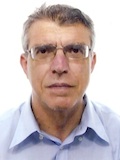 |
Danilo Capecchi Roma mail, home page |
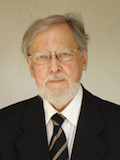 |
Erwin Stein Hannover mail, home page |
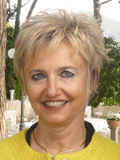 |
Patrizia Trovalusci Roma mail, home page |

